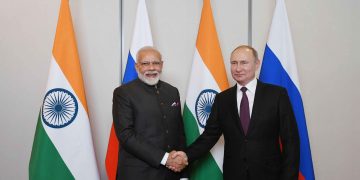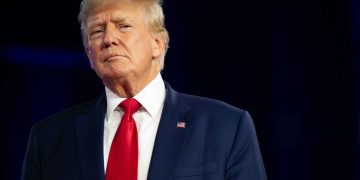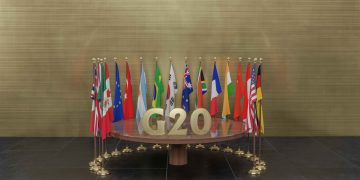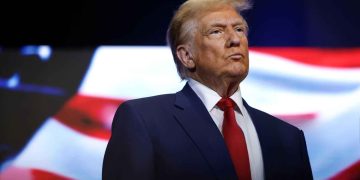As the 2024 BRICS Summit approaches in Russia from October 22-24, Turkey’s bid to join the group of emerging economies has garnered attention. While the BRICS alliance, initiated by Russia in 2009, aims to challenge the dominance of Western powers, Turkey’s application has raised questions about its balancing act between BRICS and its long-standing ties to NATO and the European Union (EU).
Analysts suggest that Turkey’s bid to join BRICS reflects more of a strategic play than a definitive shift away from the West. “Turkey’s BRICS bid represents a slow drift from the Transatlantic community,” stated Asli Aydintasbas, a visiting fellow at Brookings Institution’s Center on the United States and Europe.
Turkey’s formal BRICS application comes after speculation spurred by Kremlin comments in June supporting Ankara’s aspirations to join. As a NATO member and EU candidate, Turkey’s BRICS bid marks a significant diplomatic maneuver, especially given the group’s political alignment with Russia and China. BRICS—comprising Brazil, Russia, India, China, and South Africa—seeks to challenge the global dominance of Western powers. Egypt, Ethiopia, Iran, and the UAE joined the bloc in early 2024.
The announcement of Turkey’s BRICS bid comes as President Erdogan seeks alternatives in response to stagnating EU accession talks and increasing geopolitical tension, including Western sanctions over Turkey’s purchase of the Russian S-400 missile system. While Turkey shares differences with BRICS members over issues like the Ukraine conflict, Erdogan’s government maintains a pragmatic stance, expressing unwavering support for Ukraine’s territorial integrity while also exploring closer ties with BRICS members.
Despite Turkey’s growing trade with China, the EU remains its largest trading partner, with Ankara balancing its economic and political allegiances between East and West. Some experts, like Muhdan Saglam, argue that Turkey’s BRICS bid is symbolic, signaling to the West that it has other options, but with little immediate economic or defense implications.
As BRICS countries control 45% of the world’s population and nearly 28% of global economic output, Turkey’s potential membership could shift global economic dynamics. However, the long-term impact of its bid remains uncertain as Erdogan continues to navigate both BRICS and NATO ties.
The presidents of China and Iran have already confirmed attendance at the October summit in Russia. Turkish President Erdogan’s office is yet to officially confirm his participation.





















